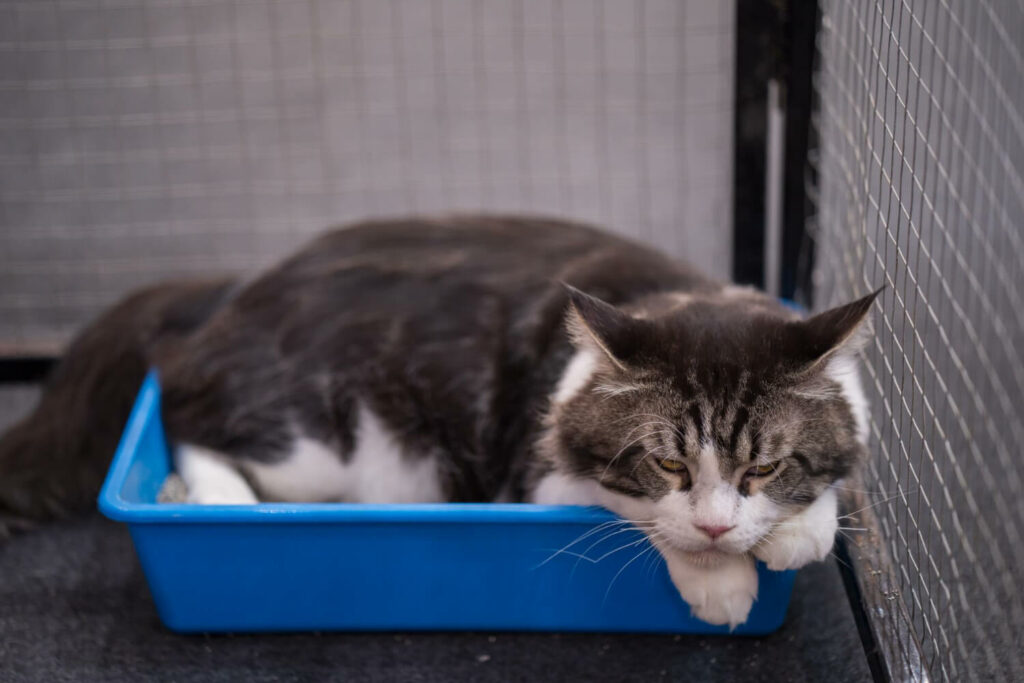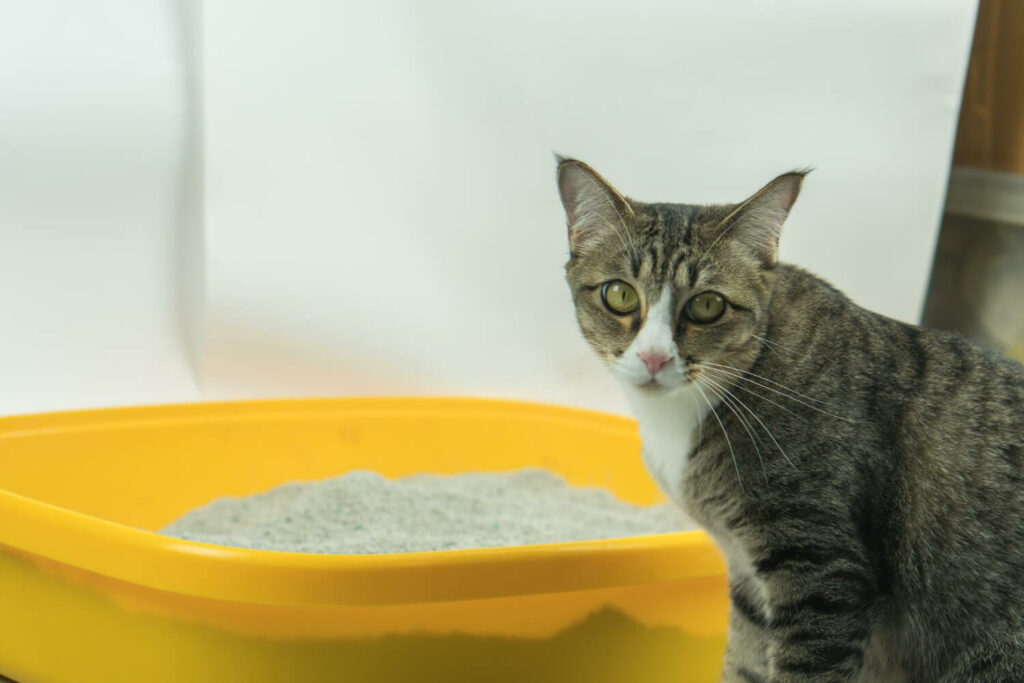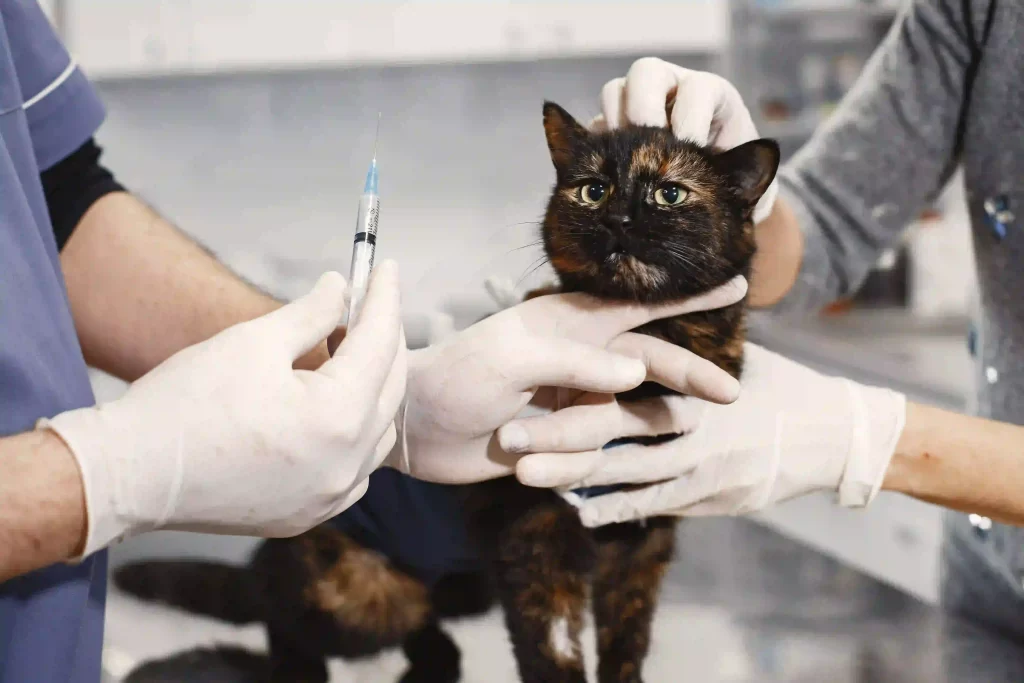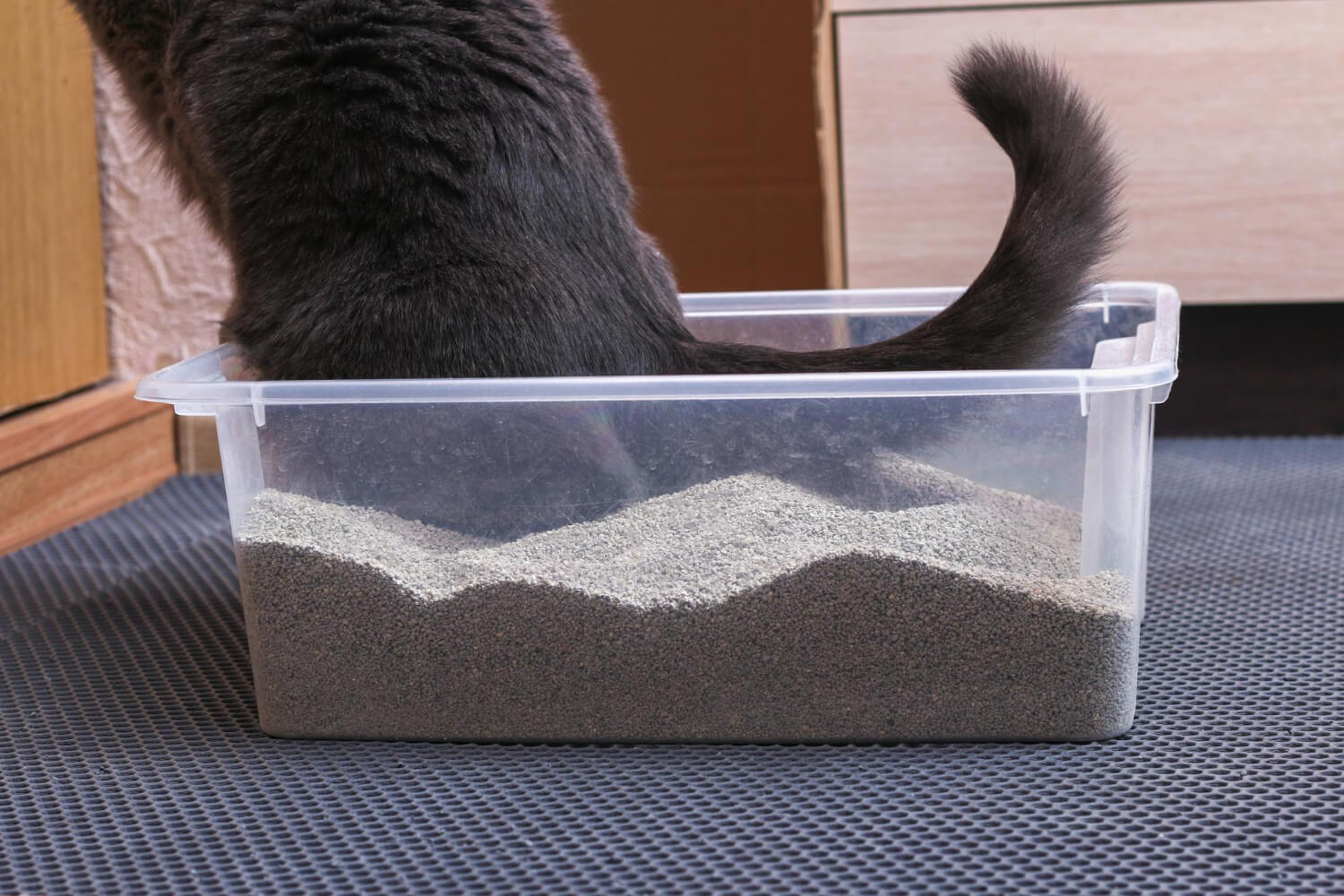Help! Why is My Cat Peeing Blood?
Is your cat peeing blood? This can be a symptom of many things.
I often watch for discoloration in my cat’s litter box as it helps me to make sure my micika is doing good. I was concerned especially after he got spayed. I would spend every moment checking if he was okay.
At some point, I also went to the vet as he was licking himself and there was blood. But as I went to Google the symptoms, I found many diseases and conditions that could be revealed if your cat is peeing blood.
This is what I found by doing my research.
Key Takeaways:
- Seeing blood in cat urine can indicate various health issues and warrants a visit to the veterinarian.
- Blood in cat urine can sometimes signal a serious health issue like bladder stones, UTIs, FLUTD, or even bladder cancer,
- Treatment options vary depending on the underlying cause and may include antibiotics for UTIs, dietary changes, medication, or even surgery for more severe cases like bladder stones.
- Preventive measures include providing a balanced diet, ensuring adequate hydration, and maintaining a stress-free environment for your cat.
- What are the symptoms of blood in cat urine?
- What could be causing my cat to pee blood?
- How can my veterinarian diagnose the issue?
- What Treatment Options Are Available for a Cat Peeing Blood?
- What can I do to prevent my cat’s blood in urine from happening again?
- What Steps Should I Take if My Cat Starts Peeing Blood?
- Can Blood in Cat Urine Be a Sign of a Serious Health Issue?
- How Can I Support My Cat During Treatment?
- FAQ
What are the symptoms of blood in cat urine?
Blood in cat urine might look pinkish or reddish. Your cat may also show signs like going to the litter box frequently, straining to urinate, or crying out in pain. It’s essential to watch for these signs if you suspect something might be wrong with your cat’s urine.
What could be causing my cat to pee blood?
If you’re searching for an answer to why is there blood in my cats pee, there are a few reasons why there might be blood in cat urine. These are the most common ones:
- Feline Lower Urinary Tract Disease (FLUTD): This is kind of like a catch-all term for bladder problems in cats. It can cause irritation and inflammation, leading to bloody pee. Stress, diet, and even litter box changes can sometimes trigger FLUTD.
- Urinary Tract Infections (UTIs): These are less common in young cats, but more likely in older ones, especially females. UTIs are like little infections in the bladder that can make it painful to pee and cause blood in cat urine.
- Other Causes (Less Likely): Sometimes, bladder stones, injuries, or even cancer can cause blood in cat urine. But these are less common than FLUTD or UTIs.
How can my veterinarian diagnose the issue?
Your vet will probably need to do some tests, like checking your cat’s urine or doing x-rays. They’ll also ask you questions about your cat’s health and behavior. These tests help them figure out what’s causing the problem so they can treat it properly.
No matter the reason, seeing blood in cat urine means a trip to the vet is important. It’s especially urgent if your cat is also:
- Straining to pee and not going much to the litter box
- Crying or yowling in pain while peeing
- Peeing more often than usual

What Treatment Options Are Available for a Cat Peeing Blood?
The good news is that there are many treatment options available for cats with blood in cat urine, and the specific treatment will depend on the underlying cause diagnosed by your veterinarian.
For feline lower urinary tract disease (FLUTD), treatment often focuses on managing the inflammation and irritation in the bladder. This might involve medication to help relax the bladder muscles and reduce discomfort. Your vet might also recommend a special diet that can help change the acidity of your cat’s urine, making it less irritating.
If your cat has a urinary tract infection, they’ll likely be prescribed antibiotics to fight off the bacteria causing the infection. In some cases, additional medication might be needed to manage pain or inflammation while the antibiotics work their magic.
For less common causes like bladder stones, treatment can vary depending on the type and size of the stones. In some cases, dietary changes alone might be enough to dissolve smaller stones. However, for larger stones or certain types, surgery might be necessary to remove them.
No matter the cause, increasing your cat’s water intake is often a crucial part of treatment. This helps dilute their urine and flush out any irritants or bacteria. You can encourage your cat to drink more by providing multiple water bowls around the house, using a water fountain, or even adding a little water to their wet food.
What can I do to prevent my cat’s blood in urine from happening again?
To help prevent future episodes of blood in cat urine, it’s essential to provide a balanced diet and ensure your cat has access to fresh water at all times. Some cats may benefit from specially formulated urinary health diets prescribed by veterinarians.
Creating a stress-free environment for your cat and providing plenty of opportunities for exercise and mental stimulation can help promote overall urinary tract health. Regular veterinary check-ups are also important for early detection and management of any potential urinary issues.
What Steps Should I Take if My Cat Starts Peeing Blood?
Immediate Action:
The most important step you can take is to contact your veterinarian as soon as possible. Blood in cat urine is a red flag and should not be ignored. While it might not be a life-threatening emergency, it’s crucial to get a professional diagnosis to determine the cause and prevent potential complications.
While Waiting for Your Appointment:
- Hydrate Your Cat: In the meantime, focus on keeping your cat well-hydrated. Increased water intake helps dilute the urine and flush out any irritants or bacteria that might be contributing to the problem. Provide multiple, fresh water bowls throughout the house. Consider a water fountain, which can be more enticing for some cats. You can even try adding a splash of water to their wet food.
- Ensure a Clean Litter Box: Make sure your cat has access to a clean litter box. A dirty litter box can be stressful for your cat and might discourage them from using it, which can worsen the situation. Consider scooping the box more frequently during this time.
- Hold Off on Medications: Avoid giving your cat any over-the-counter medications unless specifically directed by your veterinarian. Some medications can actually worsen the underlying condition or mask important symptoms, making it harder for the vet to diagnose the problem.

At the Vet’s Office:
Your veterinarian will perform a thorough examination of your cat, including a physical exam and likely a urinalysis. They might also recommend additional tests like X-rays or ultrasounds to get a clearer picture of what’s going on. Based on their findings, they will develop a personalized treatment plan for your cat.
Can Blood in Cat Urine Be a Sign of a Serious Health Issue?
Unfortunately, yes. Blood in cat urine can sometimes indicate a more serious underlying health condition. Here are some possibilities:
- Bladder Stones: These can irritate the bladder lining and cause bleeding.
- Urinary Tract Infections (UTIs): These bacterial infections can inflame the bladder and urethra, leading to blood in cat urine.
- Feline Lower Urinary Tract Disease (FLUTD): This is a complex condition that can cause inflammation and irritation in the bladder, sometimes resulting in blood in cat urine.
- Bladder Cancer: While less common, blood in cat urine can sometimes be a sign of bladder cancer in cats.
Early Detection is Important for the Health of Your Catto
The damage of serious health issues is why it’s so important not to ignore blood in your cat’s urine and to seek veterinary attention promptly.
The sooner the cause is identified, the sooner your cat can receive appropriate treatment and the better their prognosis will be. While not all cases of bloody urine are life-threatening, early intervention can significantly improve your cat’s quality of life and prevent complications.

How Can I Support My Cat During Treatment?
There are several ways you can help your cat feel comfortable and supported during treatment;
- Follow Your Vet’s Instructions: This is the most important thing. Make sure you administer any prescribed medications exactly as directed by your veterinarian. Don’t skip doses or adjust the medication without consulting your vet first.
- Create a Stress-Free Environment: Provide your cat with a quiet, comfortable place to recover, away from any potential stressors. Make sure they have easy access to their litter box, fresh water, and their usual food.
- Monitor Your Cat Closely: Pay attention to your cat’s behavior and be on the lookout for any changes in their symptoms, appetite, or overall well-being. If you notice anything unusual, please report it to your veterinarian promptly.
- Offer Lots of Love and Attention: Your cat might be feeling under the weather, so extra TLC goes a long way. Spend some quality time with your feline friend, offer gentle petting and cuddles (if they’re receptive), and let them know you’re there for them.
FAQ
Why is there blood in my cat’s pee?
Blood in your cat’s urine can indicate various underlying health issues. Common causes include urinary tract infections (UTIs), feline lower urinary tract disease (FLUTD), bladder stones, or even bladder cancer.
What does it mean when a cat pees blood?
When a cat pees blood, it signifies a potential health problem that requires medical attention. It could indicate urinary tract issues such as infections, inflammation, or the presence of bladder stones.
How will my veterinarian diagnose the cause of blood in my cat’s urine?
Your veterinarian will likely perform a thorough physical examination of your cat and may recommend diagnostic tests such as a urinalysis, blood tests, and imaging studies like X-rays or ultrasounds.
How are urinary tract infections (UTIs) treated in cats?
UTIs in cats are typically treated with antibiotics to eliminate the bacterial infection. Your veterinarian may also recommend additional treatments to help manage symptoms such as pain or inflammation.







